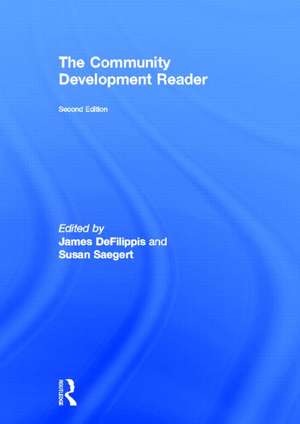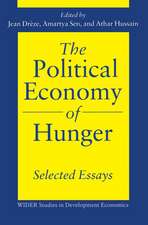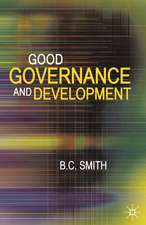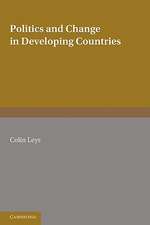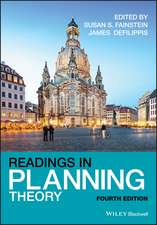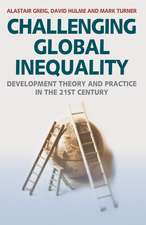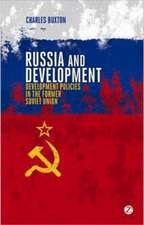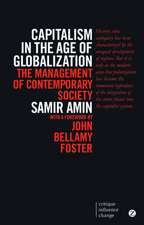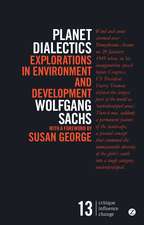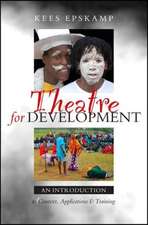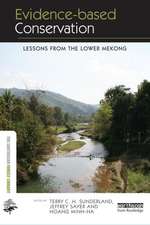The Community Development Reader
Autor James DeFilippis, Susan Saegerten Limba Engleză Hardback – 15 feb 2012
| Toate formatele și edițiile | Preț | Express |
|---|---|---|
| Paperback (1) | 578.13 lei 6-8 săpt. | |
| Taylor & Francis – 15 feb 2012 | 578.13 lei 6-8 săpt. | |
| Hardback (1) | 884.13 lei 6-8 săpt. | |
| Taylor & Francis – 15 feb 2012 | 884.13 lei 6-8 săpt. |
Preț: 884.13 lei
Preț vechi: 1220.84 lei
-28% Nou
Puncte Express: 1326
Preț estimativ în valută:
169.18€ • 176.100$ • 140.54£
169.18€ • 176.100$ • 140.54£
Carte tipărită la comandă
Livrare economică 02-16 aprilie
Preluare comenzi: 021 569.72.76
Specificații
ISBN-13: 9780415507738
ISBN-10: 0415507731
Pagini: 416
Ilustrații: 19 tables and Following last edn style
Dimensiuni: 178 x 254 x 28 mm
Greutate: 0.93 kg
Ediția:Revizuită
Editura: Taylor & Francis
Colecția Routledge
Locul publicării:Oxford, United Kingdom
ISBN-10: 0415507731
Pagini: 416
Ilustrații: 19 tables and Following last edn style
Dimensiuni: 178 x 254 x 28 mm
Greutate: 0.93 kg
Ediția:Revizuită
Editura: Taylor & Francis
Colecția Routledge
Locul publicării:Oxford, United Kingdom
Cuprins
Part 1: History and Future of Community Development Part 2: Community Development Institutions and Practices Part 3: Building and Organizing Community Part 4: Globalization and Community Development Part 5: Theoretical Concepts and Debates
Notă biografică
James DeFilippis is an Associate Professor in the Bloustein School of Planning and Public Policy at Rutgers University. He is the author of Unmaking Goliath: Community Control in the Face of Global Capital, and co-author (with Robert Fisher and Eric Shragge) of Contesting Community: The Limits and Potential of Local Organizing.
Susan Saegert is Professor of Environmental Psychology at the CUNY Graduate Center, where she was also the first director of the Center for the Study of Women and Society. Dr. Saegert has published five books including Social Capital in Poor Communities with Phil Thompson and Mark Warren (Russell Sage, 2001), and From Abandonment to Hope: Community Households in Harlem , with Jackie Leavitt (Columbia University Press, 1990).
Susan Saegert is Professor of Environmental Psychology at the CUNY Graduate Center, where she was also the first director of the Center for the Study of Women and Society. Dr. Saegert has published five books including Social Capital in Poor Communities with Phil Thompson and Mark Warren (Russell Sage, 2001), and From Abandonment to Hope: Community Households in Harlem , with Jackie Leavitt (Columbia University Press, 1990).
Recenzii
"This updated anthology is a welcome addition for those who teach community development. It is a thorough and comprehensive treatment of the field that covers questions of practice and theory. A new section on globalization and contributions on sustainability make it the best single source for students of community development."
—Edward G. Goetz, Public Affairs, University of Minnesota
"Community development practitioners like me learn largely from our successes and failures at the most granular street level, as well as dialogue with colleagues and policy makers. The Community Development Reader provides a multitude of insightful and up to date chapters on community development strategies and institutions as well as critical examination of the challenges we face. I found the chapters on food systems and environmental sustainability particularly relevant to our current initiatives."
—Nancy Biberman, President, Women’s Housing and Economic Development Corporation (WHEDco)
"I rely on The Community Development Reader as a unique book that is unparalleled. No other book examines the concept of communities and develops the theme into a rich and powerful examination of the city as a complex array of processes. While it is an edited volume, The CDR reads like a single-authored work, as it seamlessly incorporates significant essays from leading scholars."
—Immanuel Ness, Political Science, Brooklyn College
"The book is fascinating: the writings are well organized, the concepts are easy to understand, and the stories are very appropriate for my students. It covers a wide arrange of topics in community development practices, including a variety of dimensions of community development, from fund-raising, to organization management, to involving the community. The topics give our students a lot to discuss and debate about – great for critical thinking."
—Jia Lu, Architecture and Planning, Catholic University
—Edward G. Goetz, Public Affairs, University of Minnesota
"Community development practitioners like me learn largely from our successes and failures at the most granular street level, as well as dialogue with colleagues and policy makers. The Community Development Reader provides a multitude of insightful and up to date chapters on community development strategies and institutions as well as critical examination of the challenges we face. I found the chapters on food systems and environmental sustainability particularly relevant to our current initiatives."
—Nancy Biberman, President, Women’s Housing and Economic Development Corporation (WHEDco)
"I rely on The Community Development Reader as a unique book that is unparalleled. No other book examines the concept of communities and develops the theme into a rich and powerful examination of the city as a complex array of processes. While it is an edited volume, The CDR reads like a single-authored work, as it seamlessly incorporates significant essays from leading scholars."
—Immanuel Ness, Political Science, Brooklyn College
"The book is fascinating: the writings are well organized, the concepts are easy to understand, and the stories are very appropriate for my students. It covers a wide arrange of topics in community development practices, including a variety of dimensions of community development, from fund-raising, to organization management, to involving the community. The topics give our students a lot to discuss and debate about – great for critical thinking."
—Jia Lu, Architecture and Planning, Catholic University
Descriere
The Community Development Reader is the first comprehensive reader in the past thirty years that brings together practice, theory and critique concerning communities as sites of social change. The second edition is significantly updated and expanded to include a section on globalization as well as new chapters on the foreclosure crisis, and emerging forms of community.
